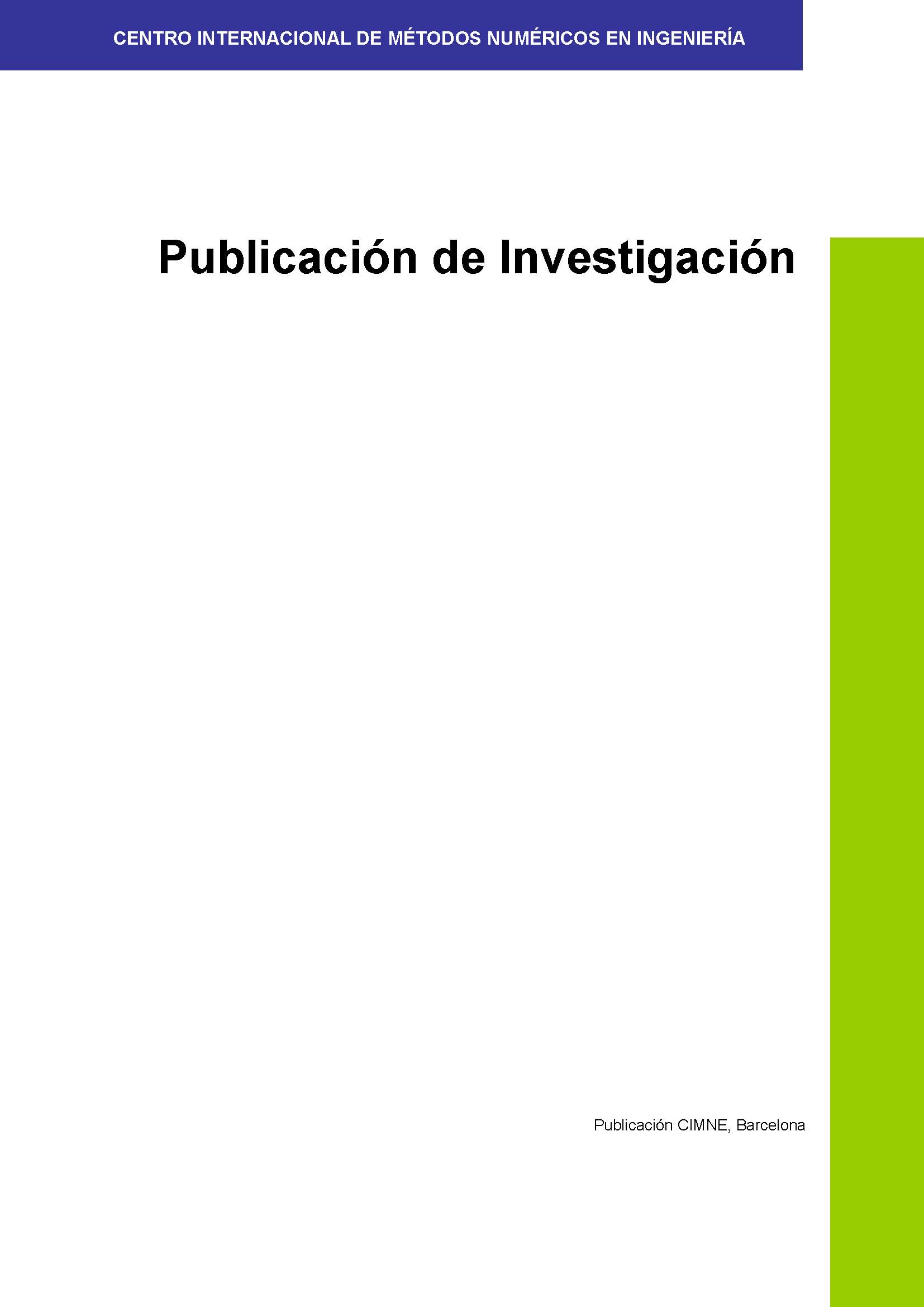A finite point method to solve shallow water equations
FREE!
Editorial: CIMNE
Year of publication: 2009
Pages: 32
Editorial: CIMNE
Year of publication: 2009
Pages: 32
Descripción
The Finite Point Method (FPM) proposed by Oñate et al. is a truly meshfree method, which has a great capability to handle fluid flow and solid mechanics problems. The numerical analysis process for this meshfree scheme consists of generating first a set of points, named global cloud of points or nodes, within problem domain. Then, for each of these points, a local cloud of neighboring points is selected. Local approximations of unknowns are performed using weighted least square procedure. Finally, the algebraic equations are obtained by substituting above local approximations directly into the governing partial differential equations of the problem (strong form).
Due to the great capability to solve the fluid flow problem, in this present work we will try to solve the shallow water equations, which are degenerated from tri-dimensional Navier-Stokes equations by integrating them in gravity direction. Similar with other fluid flow problems, the solution procedure need some stabilization. In this work, we use the approximate Riemann solver, which is most suitable to work with the strong form of governing equations. Also, the preserve the high accuracy of FPM approximation, the iterative sheme to generate the local cloud and local approximation proposed by Ortega et al., are used to construct FPM approximation.
The report is organized as follows: Section 2 introduce the basic weighted least square (WLS) approximation for finite point method. Section 3 explains the iterative procedure to compute the shape functions. Section 4 describes the construction of local clouds, and Section 5 the shallow water equations and the flow solver. Numerical examples are shown in Section 6, and some conclusions are drawn in Section 7.

